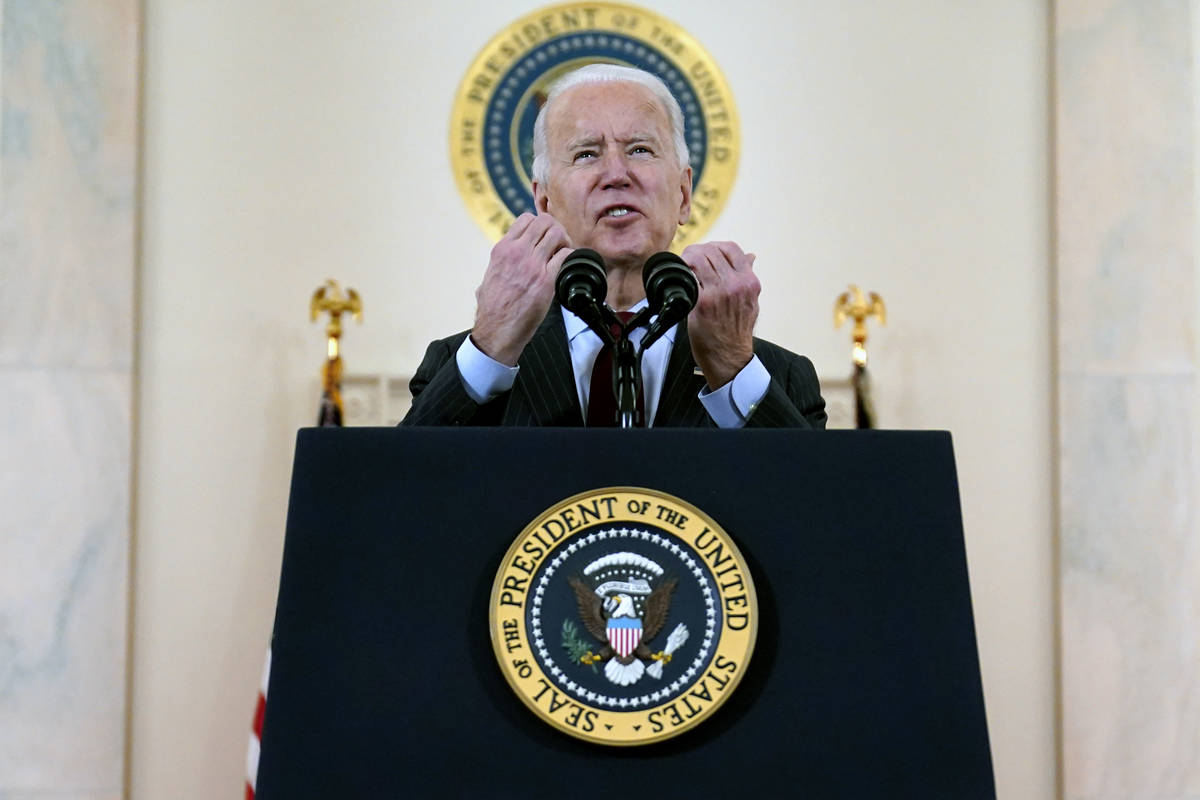EDITORIAL: Democratic ‘stimulus’: The era of ‘free’ stuff begins

President Joe Biden put his signature on the $1.9 trillion “stimulus” bill, perhaps one of the most blatant examples of outright vote buying in the country’s history. Most of the porkapalooza has absolutely nothing to do with juicing the economy and everything to do with perpetuating dependency and rewarding fiscally profligate Democratic states.
The most popular aspect of the bill is the cash payment — large checks to not only the unemployed or the struggling but also many well-off individuals and families who have suffered little financial hardship because of the pandemic. Expect much more of this “free stuff” approach to governing as long as collectivists continue their takeover of the Democratic Party.
But the measure also includes scores of gems buried deep inside, highlighting how, once again, they likely had to pass the bill to find out what’s in it. Here are just two egregious examples:
— Most Americans may not realize that the IRS considers discharged debt as taxable income. If you owe a credit card company $10,000 but it agrees to settle the matter for $6,000, you owe taxes on the remaining $4,000. So with all the talk in Washington about forgiving student loans— while continuing to issue new loans, of course — Senate Democrats added a provision in the “stimulus” bill to shield any such debt discharged through 2025 from the tax man, The Wall Street Journal reported this week. This is intended to minimize the shock from millions of borrowers at tax time after Mr. Biden magically makes all or a portion of their obligations vanish. It’s also another sop to the well-off.
“Tax-free debt forgiveness for grad students,” the Journal notes, “while those who didn’t attend college or worked to pay off their loans get stuck” with the bill. Welcome to the progressive version of “equity.”
— Congressional Democrats swore up and down that they weren’t bailing out blue states and local governments with the $350 billion they’ve funneled to the public sector disguised as pandemic aid. Yet the formula to determine who gets what involves a state’s unemployment rate, which rewards governors who imposed more economically destructive lockdowns. Meanwhile, Senate Democrats nestled a provision in the bill that could block states from cutting taxes if they take the stimulus money.
Budgets in many locales have proven remarkably resilient, so the point is to prevent states from taking the money and then lowering taxes or delaying scheduled tax hikes. The provision is constitutionally dubious, depending how it is interpreted, but it’s a remarkable example of progressive chutzpah in that it effectively makes it easier for high-tax Democratic states such as Illinois, New York and California to compete with low-tax red ones such as Texas and Florida.
Mr. Biden called the latest “stimulus” bill “historic.” That’s not the word that comes to mind.